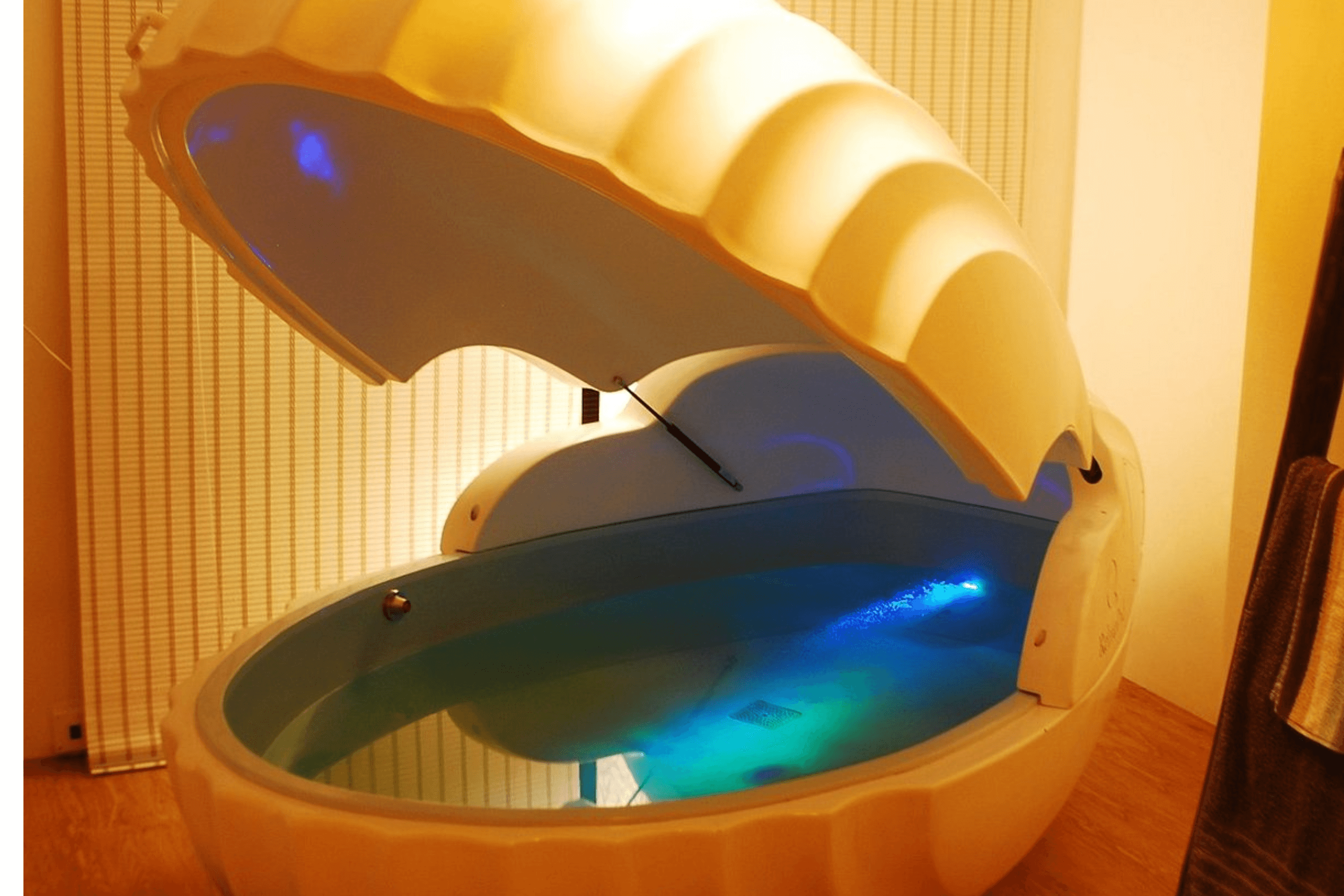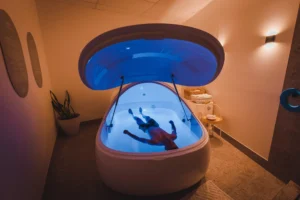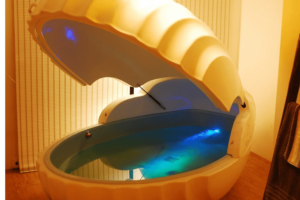In today’s fast-paced world, mental clarity has become a prized asset. With constant stress, anxiety, and distractions, finding ways to enhance focus and achieve mental calm is more crucial than ever. One increasingly popular method is Float Session Therapy, a unique practice that combines relaxation, sensory deprivation, and deep introspection. But what exactly is the connection between Float Session Therapy and mental clarity? In this comprehensive guide, we will explore everything from the science behind float therapy to the health benefits of float therapy, highlighting why so many people swear by this practice.
Interestingly, Float Therapy Offers a wide range of benefits that go beyond mental relaxation. From alleviating anxiety to promoting emotional balance, a float therapy session can transform the way you think, focus, and recharge
What Is Float Session Therapy?
Before diving into its effects on mental clarity, it’s essential to understand float therapy. Float Session Therapy involves lying in a sensory deprivation tank filled with warm, Epsom-salt-saturated water. The tank is designed to block external stimuli such as light, sound, and touch, which is why it is sometimes called isolation tank therapy or sensory deprivation float therapy.
The purpose of a sensory deprivation tank is simple yet profound: to give your brain and body a chance to disconnect from external distractions, thereby enabling deep relaxation. During a float therapy session, your body effortlessly floats, supported by the buoyancy of the water, allowing muscles and joints to release tension while your mind enters a state of calm focus.
The effects of float therapy extend far beyond physical relaxation. Regular sessions are linked to float tank therapy benefits, such as reduced stress, improved sleep, enhanced mental clarity, and even emotional healing. In essence, float therapy offers a comprehensive solution for both mind and body wellness.
How Float Session Therapy Enhances Mental Clarity
So, how does float session therapy contribute to mental clarity? The answer lies in the science behind float therapy. When your sensory input is minimized, your brain naturally shifts into a state of deep relaxation. This state is associated with lower cortisol levels, reduced stress, and enhanced cognitive function.
Studies show that sensory deprivation float therapy encourages alpha brain wave production, which is linked to creative thinking, problem-solving, and heightened mental focus. In other words, the simple act of floating in a float deprivation tank can improve your ability to concentrate and process information.
Beyond neurochemistry, float session benefits include emotional regulation and improved clarity of thought. For instance, people who experience float therapy for depression report reduced mental fog, greater calm, and better decision-making abilities. Similarly, those struggling with float tank anxiety often find relief through repeated sessions, which can further support mental clarity and emotional balance.
Indeed, float therapy offers an opportunity to recalibrate both mind and body. The unique environment created by a float tank allows your mind to enter a meditative state naturally, which is difficult to achieve through conventional relaxation techniques
Physical and Health Benefits of Float Therapy
While mental clarity is a key focus, the health benefits of float therapy are equally impressive. Physical relaxation is one of the first things you notice during a float therapy session. The Epsom salt solution supports the body, relieving joint and muscle tension. This makes float therapy offer a dual benefit: your body relaxes while your mind achieves clarity.
Other float deprivation tank benefits include:
- Improved circulation and reduced inflammation
- Enhanced recovery from physical exercise
- Pain relief for chronic conditions such as arthritis and back pain
- Reduced blood pressure and stress hormone levels
Additionally, benefits of floatation tanks include a natural boost to energy and mood. The effects of float therapy on physical wellness directly support mental performance by lowering stress, which allows clearer thinking and better focus.
Float Therapy for Stress, Anxiety, and Depression
One of the most significant float session benefits lies in its impact on mental health. Those dealing with float therapy for depression or float tank anxiety often report profound improvements in mood and cognitive clarity. By reducing stress hormones like cortisol and increasing serotonin levels, float therapy offers a natural, non-invasive approach to mental wellness.
The benefits of sensory deprivation float tanks extend beyond relaxation—they help regulate emotions and improve resilience against daily stressors. A regular float therapy session can be particularly effective for individuals seeking mental clarity without relying on medications.
Float therapy offers an unparalleled combination of physical, emotional, and cognitive benefits, making it a holistic tool for achieving a focused and balanced state of mind.
Why Float Therapy Offers More Than a Traditional Spa Experience
Many people initially confuse float session therapy with conventional spa treatments. While both provide relaxation, float therapy offers benefits that a typical massage or facial cannot:
- Deep Mental Reset: Isolation tanks remove external distractions, allowing the mind to rejuvenate.
- Enhanced Focus: The science behind float therapy shows increased alpha wave activity for cognitive clarity.
- Emotional Healing: The meditative environment supports stress reduction, emotional balance, and self-reflection.
- Physical Recovery: The health benefits of float therapy include muscle relaxation, joint relief, and improved sleep.
Unlike standard relaxation techniques, float therapy offers a structured environment designed to maximize float session benefits for both mind and body
Tips for First-Time Float Session Therapy
To get the most out of your float therapy session, consider the following:
- Choose the Right Environment: Ensure the tank is clean and comfortable.
- Set Intentions: Decide whether you want to focus on relaxation, mental clarity, or stress relief.
- Avoid Stimulants: Reduce caffeine and heavy meals before floating.
- Relax Completely: Let go of tension in muscles and mind to experience full float deprivation tank benefits.
- Regular Sessions: Multiple float therapy sessions amplify float session benefits over time.
Remember, float therapy offers a unique opportunity to recharge both mentally and physically.
FAQ Section
Q1: What is Float Session Therapy?
A: Float session therapy involves lying in a sensory deprivation tank filled with saltwater, reducing sensory input to promote relaxation and mental clarity. Float therapy is essentially a deep meditation experience with physical support from Epsom salt water.
Q2: How does Float Therapy improve mental clarity?
A: The science behind float therapy shows that sensory deprivation encourages alpha brain waves, reduces cortisol, and enhances focus. Float session benefits include mental clarity, reduced stress, and emotional balance.
Q3: Can Float Therapy help with depression and anxiety?
A: Yes. Float therapy for depression and float tank anxiety relief are well-documented. Benefits of float therapy include improved mood, better sleep, and stress reduction.
Q4: How long is a typical Float Therapy Session?
A: A typical float therapy session lasts 60–90 minutes, though shorter sessions are possible. Regular sessions maximize float session benefits for both mind and body.
Q5: Are there any side effects?
A: Side effects are minimal. Some may feel initial discomfort adjusting to the tank. Overall, float therapy offers a safe and natural way to achieve relaxation and mental clarity.
Conclusion
The connection between Float Session Therapy and mental clarity is clear: by reducing sensory input and promoting deep relaxation, float therapy offers an environment for the mind to reset, focus, and recharge. The health benefits of float therapy, including physical recovery, stress relief, and emotional balance, further amplify the float session benefits, making it a powerful tool for mental clarity and overall wellness.
Whether you are seeking relief from float tank anxiety, exploring float therapy for depression, or simply looking to experience the benefits of floatation tanks, a float therapy session is a transformative experience. With consistent practice, float therapy offers the potential for long-term improvements in both mind and body, proving that this ancient yet innovative technique is more than just a spa trend; it’s a pathway to mental clarity and holistic well-being.





